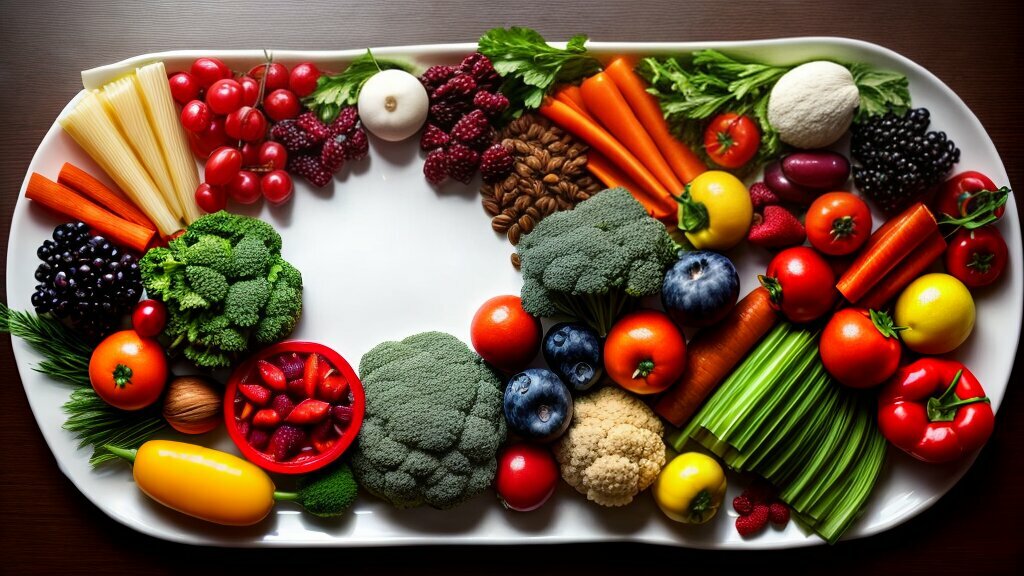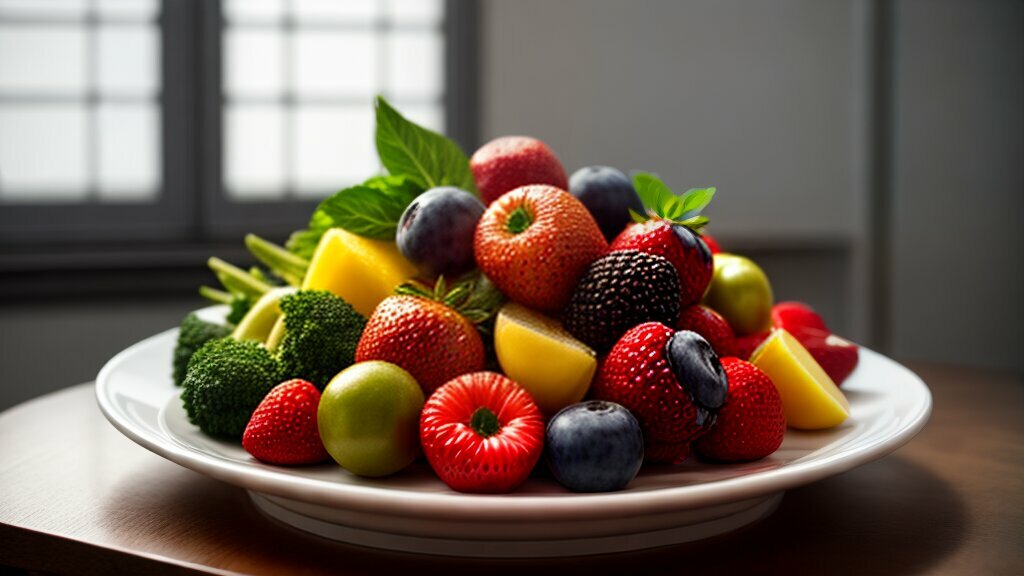As you age, your body’s nutritional needs change, and proper nutrition becomes more important than ever for maintaining good health and wellbeing. Senior nutrition is about making sure you get all the essential nutrients your body needs to stay healthy and active, and it can help you enjoy your golden years to the fullest.
Senior nutrition tips are crucial for keeping you on track with your dietary needs, so you can maintain healthy bones, muscles, and organs, prevent chronic diseases, and have the energy you need to stay active and engaged in life.
Key Takeaways:
- Proper nutrition is essential for maintaining good health and wellbeing in your golden years.
- Senior nutrition tips can help you meet your body’s changing nutritional needs.
- A healthy diet can help prevent chronic diseases, maintain healthy bones and muscles, and keep you active and engaged in life.
Dietary Recommendations for Older Adults
As you age, your body goes through changes that may affect your nutritional needs. To ensure optimal health, it’s important to focus on a balanced diet that provides adequate nutrients. Here are some key dietary recommendations to keep in mind:
| Nutrient | Recommended daily amount for adults over 50 | Food sources |
|---|---|---|
| Calcium | 1200 mg | Low-fat dairy products, leafy greens, fortified foods and drinks |
| Vitamin D | 600-800 IU | Fatty fish, egg yolks, fortified foods and drinks, sunlight |
| Fiber | 21-30 grams | Whole grains, fruits, vegetables, nuts, seeds |
| Protein | 0.8-1.2 g per kg of body weight | Lean meats, poultry, fish, eggs, beans, tofu |
| Healthy fats | No specific recommendation | Nuts, seeds, avocados, olive oil, fatty fish |
| Sodium | Less than 2300 mg | Avoid processed and packaged foods, opt for fresh or homemade meals with limited salt |
It’s also important to stay hydrated by drinking plenty of water throughout the day. Try to limit sugary drinks and alcohol, as they can have negative effects on your health.
When planning your meals, aim for a variety of nutrient-dense foods from each food group. Choose whole foods over processed options whenever possible, and pay attention to portion sizes to avoid overeating. It may be helpful to consult with a registered dietitian to create a personalised meal plan that meets your nutritional needs.

Senior Meal Planning and Recipes
As you age, planning your meals becomes even more important to ensure you’re getting all the nutrients you need to maintain your health and wellbeing. By following some simple strategies for senior meal planning, you can make sure that you’re eating a nutritious and delicious diet that meets your unique needs.
Plan Ahead
One of the keys to successful senior meal planning is to plan ahead. Take some time at the beginning of each week to decide what meals you want to eat and make a grocery list. This will help you to avoid last-minute trips to the store and ensure that you have all the ingredients you need on hand.
Keep it Simple
When it comes to senior meal planning, simplicity is key. Look for recipes that are easy to prepare and require minimal effort. For example, slow cooker meals are a great option as they can be prepared in advance and left to cook throughout the day.
Focus on Nutrient-Dense Foods
When planning your meals, it’s important to focus on nutrient-dense foods such as fruits, vegetables, whole grains, lean proteins, and healthy fats. These foods contain the vitamins, minerals, and other nutrients that your body needs to function at its best.
Choose Senior-Friendly Recipes
When selecting recipes for your meal plan, look for ones that are senior-friendly. This means choosing recipes that are easy to chew and digest, and that are packed with essential nutrients. Some great options include soups, stews, casseroles, and roasted vegetables.
Try New Flavors
Don’t be afraid to experiment with new flavors and cuisines. Trying new foods can help to keep your meals interesting and exciting, while also providing a range of different nutrients.
Sample Meal Plan
| Meal | Menu |
|---|---|
| Breakfast | Wholegrain toast with avocado and sliced tomato, served with a boiled egg |
| Lunch | Grilled chicken salad with mixed greens, cherry tomatoes, cucumber, and balsamic vinaigrette |
| Dinner | Slow cooker beef stew with carrots, potatoes, and onions, served with a side of whole grain bread |
| Snack | Apple slices with almond butter |
By following these senior meal planning tips and recipes, you can ensure that you’re getting all the nutrients you need to maintain your health and wellbeing as you age. Remember to focus on nutrient-dense foods, keep it simple, and plan ahead to make mealtime a breeze!

Nutritional Needs for Aging Adults
As you age, your body’s nutritional needs change. In order to maintain a healthy diet as a senior, it’s important to understand these changes and adapt your eating habits accordingly.
One key nutrient that seniors may be at risk of deficiency in is vitamin D. This vitamin is essential for strong bones and muscles, and older adults often have reduced exposure to sunlight, which is a primary source of vitamin D. To meet your vitamin D needs, try incorporating fatty fish like salmon or tuna, egg yolks, and fortified foods like milk and cereal into your diet.
Fiber is another important nutrient that becomes increasingly important as you age. It helps to maintain healthy digestion and reduce the risk of chronic diseases like heart disease and diabetes. Good sources of fiber include fruits and vegetables, whole grains, and legumes.
Calcium is also crucial for maintaining strong bones and preventing osteoporosis. Dairy products like milk, yogurt, and cheese are excellent sources of calcium, as are leafy greens like kale and broccoli.
Finally, it’s important to pay attention to hydration as you age. Dehydration can lead to a host of problems like constipation, urinary tract infections, and confusion. Aim to drink at least 6-8 glasses of water per day, and consider incorporating hydrating foods like watermelon, cucumber, and celery into your diet.
Remember, meeting your nutritional needs is an essential part of maintaining your health and wellbeing as you age. By incorporating nutrient-dense foods into your diet and paying attention to your body’s changing needs, you can ensure that you’re giving yourself the best chance to age healthily.

Conclusion
Congratulations! By reading this article, you have taken an important step towards optimizing your golden years through proper nutrition. As you age, your nutritional needs change, and it becomes even more important to focus on healthy eating habits.
Remember to prioritize lean proteins, fruits and vegetables, whole grains, and healthy fats in your diet. Be mindful of portion sizes and stay hydrated throughout the day. Planning meals in advance and incorporating easy, senior-friendly recipes into your routine can make a big difference.
Don’t forget about the specific nutritional needs of aging adults. Pay attention to key nutrients, such as calcium, vitamin D, and B vitamins, and consider incorporating supplements if necessary.
By following the tips and advice outlined in this article, you can maintain a healthy diet as a senior and enjoy the many benefits that come with it, from increased energy and vitality to better overall health and wellbeing.
So go ahead and take charge of your nutrition, and enjoy your golden years to the fullest!
FAQ
Q: Why is senior nutrition important?
A: Senior nutrition is important because it plays a key role in promoting overall health and wellbeing in older adults. Proper nutrition can help prevent and manage chronic diseases, support healthy aging, maintain cognitive function, and enhance quality of life.
Q: What are the specific dietary recommendations for older adults?
A: The specific dietary recommendations for older adults include prioritizing lean proteins, such as fish, poultry, tofu, and legumes; consuming a variety of fruits and vegetables; incorporating whole grains into meals; and choosing healthy fats, such as avocados, nuts, and olive oil. It is also important to practice portion control and stay hydrated.
Q: How can I plan meals for seniors?
A: When planning meals for seniors, it is important to focus on creating flavorful and nutrient-dense dishes. It is recommended to plan meals in advance, incorporate a variety of food groups, and consider any specific dietary restrictions or preferences. Easy-to-chew and digest recipes are also ideal for seniors.
Q: What are the nutritional needs of aging adults?
A: Nutritional needs for aging adults may vary, but common nutrients that seniors should pay attention to include calcium, vitamin D, vitamin B12, and omega-3 fatty acids. Seniors may also need to focus on maintaining a healthy weight and managing chronic conditions, such as high blood pressure or diabetes, through their diet.
